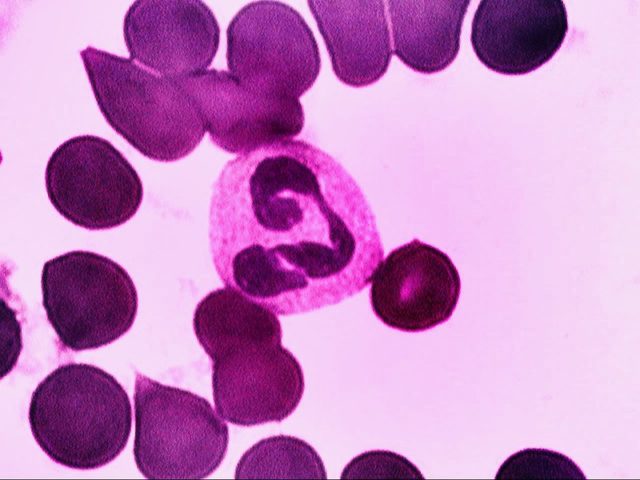
The standard of care for a potentially life-threatening complication of chemotherapy is a 30-year old drug that doesn’t kick in until the second week of treatment. BeyondSpring Pharmaceuticals’ bid to offer a new treatment option that works in week one must wait a little longer after the FDA turned down the biotech’s application seeking regulatory approval.
BeyondSpring said Wednesday that the agency’s complete response letter stated that the results of the company’s single clinical trial testing its drug, plinabulin, were “not sufficiently robust to demonstrate benefit” and a second well-controlled trial is needed to provide the evidence to support the new drug application. New York-based BeyondSpring said that it plans to request a meeting with the FDA to discuss the matter.
The dangerous complication that BeyondSpring aims to address is called chemotherapy-induced neutropenia (CIN). Neutropenia is a dangerously low level of a type of white blood cell called a neutrophil, and patients who have CIN are susceptible to infections. Standard treatment for CIN is granulocyte-colony stimulating factor (G-CSF). That drug, which is sold under names including Neuopgen, Zarxio, and Nivestym, includes a bone marrow stimulant called filgrastim as well as pegfilgrastim, which is a long-lasting form of filgrastim. The period after chemotherapy begins but before G-CSF begins to work is sometimes referred to as the “neutropenia vulnerability gap.”
Plinabulin is derived from a compound found in marine microorganisms. According to BeyondSpring, this small molecule triggers the release of an immune defense protein that offers anti-cancer benefit by activating antigen-specific T cells that target cancer cells. This protein also offers immune system benefit by boosting the number of hematopoietic stem and progenitor cells, an effect that BeyondSpring says is intended to prevent CIN.
BeyondSpring acquired global rights to plinabulin from Nereus Pharmaceuticals, and it went on to test its new asset in two Phase 2/3 studies in CIN. Those clinical trials enrolled about 500 patients randomly assigned to receive plinabulin or pegfilgrastim. The main goal of the first Phase 3 study was to show non-inferiority compared to pegfilgrastim as measured by the duration of severe neutropenia in the first cycle of chemotherapy. BeyondSpring reported that the drug met that goal.
In the second Phase 3 clinical trial – the single study that served as the basis for the plinabulin new drug application – BeyondSpring reported that its drug, in combination with pegfilgrastim, was better at preventing CIN compared to pegfilgrastim alone. The drug achieved the main goal of showing a statistically significant improvement in the rate of prevention of grade 4 neutropenia. The company also reported that the drug reduced clinical complications including febrile neutropenia and the duration of hospitalization for febrile neutropenia patients.
The BeyondSpring drug pipeline relies heavily on plinabulin. The company is evaluating the anti-cancer properties of the drug in several cancer studies. The most advanced of these studies is a Phase 3 test in non-small cell lung cancer. That clinical trial is evaluating plinabulin, in combination with the chemotherapy docetaxel, as a second or third line of treatment for the cancer.
Adding another Phase 3 study for plinabulin in CIN will get expensive. In its second quarter financial report, BeyondSpring reported its cash position as of June 30 was $76.3 million, which the company said at the time would be enough to support its ongoing clinical programs into 2022 and prepare for a launch of plinabulin.
Shares of BeyondSpring tumbled Wednesday following the announcement of the FDA’s rejection of plinabulin in CIN. The company’s stock price closed the trading day at $4.93, down more than 61% from Tuesday’s closing price.
Photo by Flickr user Magdalena Wiklund via a Creative Commons license








